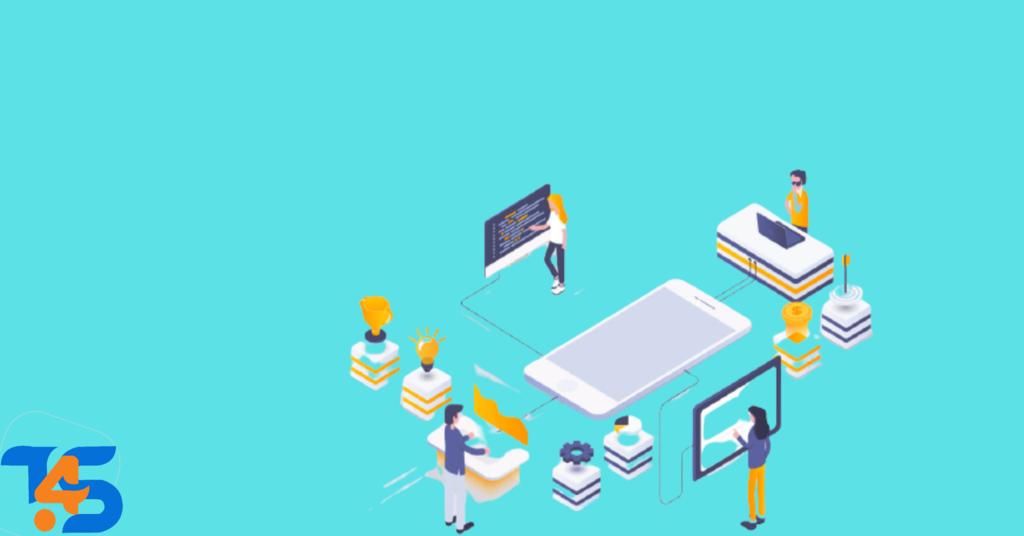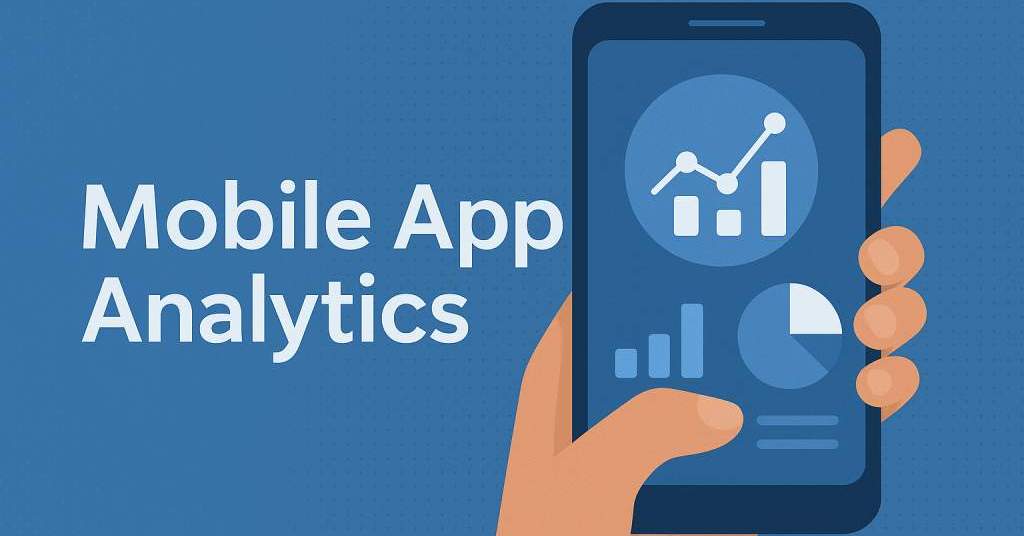
What is the Most Important Benefit of an Enterprise Application in 2023?
Software applications are an integral component of large businesses operating their business for years. Sophisticated software is used to handle everything from business intelligence to customer relations and supply chain administration.
CRM, SCM, and various other software applications provide huge advantages. They make business processes simpler they allow for better data analysis and collection, in addition to allowing users to communicate with their customers as well as colleagues and suppliers more effectively.
Enterprise applications aren't always compatible. Data that is required to be shared between the applications is kept in silos because of this. This means that information must be manually transferred from one application for different purpose in business. This is the kind of inefficiency technology must be able to eliminate from business processes.
It is crucial to have reliable and accessible systems and services to ensure efficient operations in this competitive business environment. This lets you respond to the requirements of employees, customers as well as partners. A lot of businesses and institutions are turning to new methods and technologies to improve their processes and procedures overall.
A well-run business is all about the flow of work. Efficiency is the key for your success, regardless of the type of work you perform and in which industry. Enterprise software development for enterprise is employed by many businesses of all sizes to address their issues and satisfy their requirements.
Which software is considered enterprise? What are the ways it can enhance your company's efficiency? There are many benefits of enterprise software. Here are 9 advantages to take into consideration when thinking of enterprise-level software. Let's start with the name.
WHAT IS ENTERPRISE SOFTWARE APPLICATION?
Before we discuss the advantages that come with the Enterprise System, let's define what an enterprise application is. Think about the reasons people download enterprise-level applications. It's typically because they are trying to resolve a problem. Apps designed for daily use can solve the problems of the user however enterprise apps resolve the issues of companies.
Enterprise applications link various systems within the organization to facilitate a smoother workflow. They link different departments. They must be considered by employees as tools that be used through mobile device. Since they can be tailored to specific requirements of the company as well as improve efficiency, they are a great choice. Mobile application development for enterprise is performed using enterprise systems which are software stacks used to manage complicated operations inside a company.
Enterprise integration lets you combine multiple software applications into one. This can simplify your company's everyday procedures. They're typically web-based apps. They also can function as mobile apps, if required.
DIFFERENT TYPES OF ENTERPRISE APPLICATIONS
Enterprise applications will only be useful to businesses when they are tailored to the business model they operate. Before deciding on the enterprise applications to use, companies should first determine their goals for business. These are the most popular enterprise applications:
Customer Relationship Management (CRM)
Success in sales depends on timing. CRM lets you compile data about customers using an easy system. This can include information like the date they were contacted and when the last interaction was made, as well as other details derived from the interaction. Whatever size their teams of sales are, they will be able to develop valuable databases that could later be used to develop cases studies. CRM has features such as integration with email.
Enterprise Resource Planning (ERP)
A key element of growth for any business is the transition from a large team that is able to do everything, to a more compact structure that has an outline of the responsibilities of every team. This is an inevitable step. It could cause communication issues between departments. ERP is a key element in the creation of networks. A ERP assists in ensuring that each department is equipped with the most current information. This is crucial for financial reasons. ERP systems can streamline the work of large organizations by providing precise information on cash flow and work flow. This allows better decision-making in the near future.
Human Capital Management (HCM)
A solid Human Resources department is key to the success of any organization. The HCM system lets HR specialists to manage the workforce of the business. This includes managing talent, contract administration, management of holidays and many more functions.
eCommerce Optimization
An eCommerce optimization system is essential if a company is looking to earn a profit selling physical items. It can improve efficiency and customer satisfaction. It integrates every step of the selling process to ensure that all customers know the status of every parcel. It also monitors whether the purchaser has written an online review or asked for refund. Sales reps can quickly respond to customer issues even if they're not directly related directly to the products.
Project Management
Effective communication is vital in the age of remote work. Enterprise software for project management aid teams in collaboration. This is the simplest kind of enterprise software. Project management systems monitor the progress of projects and monitor time frames and milestones. They also track the tasks. It's also helpful to keep track of information from previous projects.
BENEFITS OF ENTERPRISE SOFTWARE APPLICATION DEVELOPMENT
As you can observe, the enterprise application development is a great way to gain benefits. What is the most significant benefit of enterprise software? Take a look at the below information sharing list to help you choose.
EAI allows the exchange of information among various software programs inside and outside of a business's computing systems. EAI tracks data collection to avoid duplicates caused by every program. Integrating data gives one place of access to all information that is required. Employees will spend less time searching for information, and receive more current and accurate data. EAI facilitates more efficient collaboration between individuals and departments.
AUTOMATED PROCESS
EAI can help simplify procedures that require the use of data and activities from several software applications. The data from CRMs could be integrated into the email platform in order to deliver targeted messages to customers based on their behavior in the past or their demographics. It could also be integrated with an analytics tool to measure the effectiveness of the marketing campaign. All of this data could be integrated into any ERP program, which allows the business to allocate its resources in areas that are most efficient.
Reduced Complexity in IT
Enterprise-level companies have difficulty to make use of new technologies effectively. It is sometimes difficult to master new technology efficiently. The latest applications might not be compatible with the existing technology. This obstacle can be overcome through integration of enterprise applications which integrates the functions and data of several applications into one user-friendly interface.
Increased Agility
Integration of enterprise applications has numerous advantages for businesses. It helps companies quickly detect opportunities and react to them faster. EAI is an instrument that lets companies to deal with market shifts problems with reputation management, and supply chain disruptions all via one interface.
Centralized Location for Information
The primary purpose of Enterprise software is to consolidate all of your pertinent services and data. This can bring many advantages. Employees and members are able to access a variety of files systems, services, and files without needing to search to find them in hard disks or various Cloud storage places.
The information will be accessible in real-time so that you will be able to see and analyze it. The data generated by your business and its diverse segments and departments will be available instantly which means you don't have to wait for weeks or even months until it is examined.
This will allow you to swiftly review the information that is contained in one simple repository. You'll be able quickly get access to data, which can help you make better decisions. The data available to you will enable you to make quicker decisions.
A lot of enterprise software comes with reports, graphs and other data that is immediate. This is a good example of data visualization. The algorithms of the software can analyze the data, giving valuable insights on how you're performing in the field, what's working, and what's not.
Saves Money
Many businesses are concerned about the cost of implementing enterprise software. While an EAS could be costly in the beginning, it is important to think about the savings you can make after you have paid the initial cost.
One, it is possible to replace any software you currently use. Different systems for managing customer relationships accounting, customer relationship management, and online payment processing are likely to cost more than one system.
You may be paying for software isn't being used or often. Implementing an EAS in place can allow you to take inventory of what you are using and do not need. Be aware that your systems may have issues with one the other. Enterprise software will aid you with this problem.
Enterprise software also helps reduce the number of redundant data. Any redundant systems will be removed.
Time Saving
EAS Enterprise Software Development Services save everyone time since employees and employees of the business don't have to hunt for specific data. They just need to visit the EAS and locate the information they require.
It is crucial to keep track of the number of hours needed to input data. All data is saved in one database so you do not have to pay for someone else to input data into multiple platforms or accounts. Automation can help automate a number of the most essential tasks, which can aid in saving time and cost. The EAS can do everything for you, which means you don't have to recruit new employees.
It is also possible to remove the requirement to enter information multiple times in different systems. If you have multiple systems for managing the management of human resources and payroll for instance it is necessary to enter information twice. This is not required in the case of an EAS. This can reduce time and boost overall efficiency.
Improved Security
You're probably aware of the risks associated with ineffective or inadequate security measures. Hackers can gain access to your systems and introduce malware. Personal information of employees and customers could be exposed which puts individuals at risk. Even if your software and systems are safe, hackers can still penetrate your system. Your entire company could be in danger if you miss one application.
Enterprise software can add security to your business operations. For instance, you can incorporate password protection, as well as 2-factor authentication.
It is also possible to establish the zero-trust policy which will only allow those who are obliged to have access sensitive information or the tools to access these tools. Only those with the "need" to access or utilize data systems will be able to do this. You can alter the rights given to a person based on your status as a person, their name, or the title of their job. This allows users to gain access to the information they need. This policy also allows them to observe the actions of users and flag any behavior that may be dangerous or suspect.
Effort Scaling
It doesn't matter how large or small your company the likelihood is that it will alter shortly. A system that is enterprise-wide must be flexible enough to be able to adapt to your evolving needs. When your business grows the requirements of an EAS may expand or shrink.
Cloud-based applications and other programs can surpass the capabilities of your hardware. If your company grows it is possible to increase the size of your software for enterprise. If you discover that you don't need all the features and space in your current system, you might be able to reduce the size of your system.
Flexibility is the most important factor in achieving success. EAS can be adapted to your particular requirements. As your company grows you can increase or reduce features and capabilities. This lets you save money on items that actually benefit you, and not affecting the business's goals.
CONCLUSION
Enterprise apps should not be thought of as an option, but they are an integral component of digital transformation. Any business will not have to implement every kind of integration for enterprise apps. It should address a specific issue that affects the company. Enterprise mobile app development has advantages in boosting the efficiency of the company. This is because of improved information workflows, streamlined IT infrastructure processing automation, and standardization of data storage and data storage. Additionally, you will see a rise in the efficiency of employees, more transparency, as well as a competitive advantage. Enterprise applications enable the integration of work that is shared by multiple departments like sales, HR, and Supply Chain Management. It is essential to speedily introduce enterprise-level applications to businesses since it's a technology that is closely linked to the latest developments.




